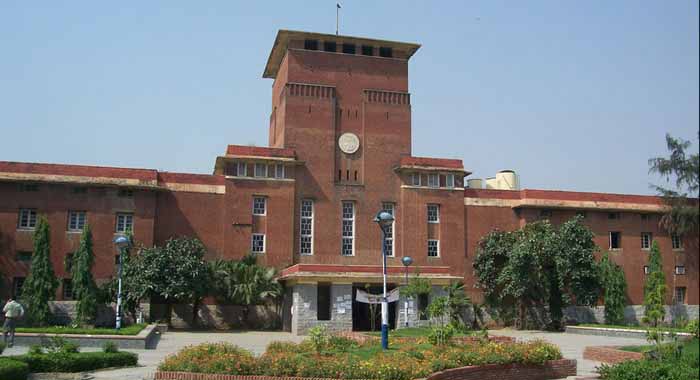The status of Eminence raises apprehensions towards the future and functioning of Delhi University (DU) under the threats of disintegration, privatization and excessive surveillance.
Just a month after the University of Delhi (DU) along with four other institutes, IIT Madras, IIT Kharagpur, Banaras Hindi University and Hyderabad University, was granted the status of Institute of Eminence (IoE) with the objective of achieving the stature of world class institute. The next step in ensuring this initiative was the signing of the trilateral Memorandum of Understanding (MoU) between the University of Delhi, the University Grants Commission (UGC) and the Ministry of Human Resource & Development (MHRD), which was duly completed the previous day.
But this further aggravates the skepticism regarding the University getting under the purview of an irrevocable authorization which substantially raises concerns of disintegration, excessive surveillance and privatization of the University, in the name of ‘Autonomy’, ‘Eminence’ and ‘Increased Government Amenities’ in this status provided.
Further the implementation of the Draft New Education Policy (DNEP) timeline of 2020 in October 2019 itself by the University is concerning in itself, the timeline which has to do with the abolition of statutory bodies like Executive Council, Academic Council and Departmental Council / College Staff Council by the constitution of all powerful Board of Governors (BOGs).
This BOGs will also be unaccountable to the Academic Council or Executive Council and hence, will come directly under the Rashtriya Shiksha Aayog (RSA). To add on to this, the elected component will be terminated and will be replaced by nominated members from stakeholders, abroad the University with the provision of weeding out inconvenient element periodically.
The One Thousand Crore Rupees grant, which is to be sanctioned over a period of ten years from the Central government comes at an expense of new jurisdictions under the BOGs and their matters which will also be devoid of any critical scrutiny of Executive Council (EC), Academic Council (AC) and Finance Committee (FC). Interestingly, the IITs which are receiving grants under this scheme have till now received only Rs 48 crores in the last two years out of the total Rs 1000 crores sanctioned.
The crisis does not ends here, the creation of such a system under the status of Eminence, has severe repercussions for academia and academics as well. Apart from the BOG and RSA surveillance which will be left on its own terms of grants and maintenance very soon, this status will confine the parallel structure for DU when it is ought to receive the entire limelight and government patronage and expected reverse adulation.
The system will even make the institution appear as a worthless vestigial organ from which the government can turn its face anytime for its inevitable signing up MoUs with backed up private institutions to sustain itself. This autonomous parallel structure of Eminence will also legitimize the infiltration of faculties from outside the DU, by relegating the existing academics and professoriate to back benches or a second and third class citizenship in terms of employment and salary structure, as this all falls under the power of BOGs.
The BOGs will also have the power to decide differential salaries and individual compensation for its faculty within the same rank and scale, thereby cultivating an atmosphere of hegemony and prejudice. The variable pay structure and the non-accountability of the Board of Governors to Academic Council and Executive Council will turn this institution into a tyranny, with the Centre laden with the power.
Undoubtedly, the status of eminence can act as an instrument of decadence for the country’s prime public university, erasing the gap between the corporate funded educational institutions and government institutions that bear the charge of promotion of the marginalized communities.
It is even more disheartening to see that after hundred years of hard work, efforts and the ever growing prominence round the world, the status of Eminence rather than a helping tool of promotion & growth, is used to hinder the University’s growth, when the upliftment of young minds should be the government’s priority. It becomes really essential for the present authorities to stress on this matter and look for the most judicious alternative that suits the university, its students and faculty and administration themselves.
Featured Image Credits: DU Beat
Faizan Salik
[email protected]








